|
Relationship to Core Wave
 "Are modern
humans seeking the same things as our ancestors were in
using narcotic and hallucinogenic substances? Have the
roles of legality and morality improved or damaged 'drug
habits', and is there still a strong case against the rights of
the individual to ingest what he pleases? Is it the same
sector of society that 'indulges', or has the field widened,
narrowed or otherwise changed? What is it that people
seek in other or expanded consciousness, and has THIS
changed over the millennia?" -- s.k. "Are modern
humans seeking the same things as our ancestors were in
using narcotic and hallucinogenic substances? Have the
roles of legality and morality improved or damaged 'drug
habits', and is there still a strong case against the rights of
the individual to ingest what he pleases? Is it the same
sector of society that 'indulges', or has the field widened,
narrowed or otherwise changed? What is it that people
seek in other or expanded consciousness, and has THIS
changed over the millennia?" -- s.k.
"Do altered states inherently altered perceptions of time? Doesn't the perception of time change based on the state of one's consciousness? Does this literally change time?" -- r. c.
Connection Tunnels
Alien Dream Time
The Meru Project
The Infinite Game AND The Internet
The Bridge
Highlight Quotes
"Open your mind" - Cuato.
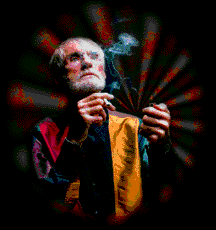
"Questions about psychedelic drugs remain unanswered because our basic questions about consciousness remain unanswered. As we learn more about the biochemistry and physiology of consciousness, then we will understand the specific effect and uses of consciousness-altering plants." -- Timothy Leary from Politics of Ecstasy 1965
Geographic Location
"Since its people contributed the most to this field - as far as I am aware - CENTRAL AMERICA." -- s.k.
"More specifically WIRIKUTA or THE FIELD OF FLOWERS, where the Huichol pilgrimage for peyote. Near the mountainous states of Jalisco and Nayarit in North Central Mexico. -- r.c."
Images and Clips

Access and Distribution
There are many sources of detailed information on a host
of intriguing plants and substances to be found on the
net, for example at Lycaeum.org or at Hyperreal.org
or HerbWeb.com, and I highly
recommend a spectacular book called Plants Of The Gods
(Schultes and Hofmann, Healing Arts Press 1992) for
those keen to go deeper still. You may also want to check
out TIHKAL (Tryptamines I Have Known And Loved)
by Alexander Shulgin.
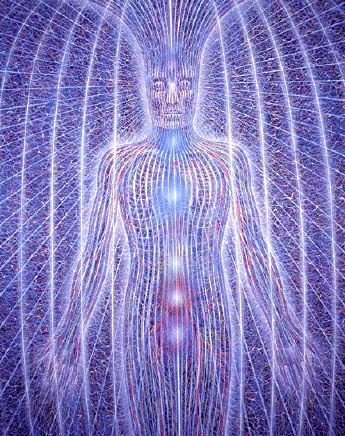



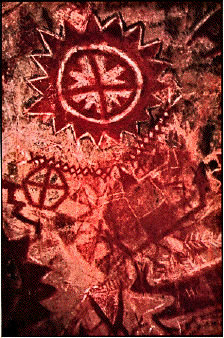
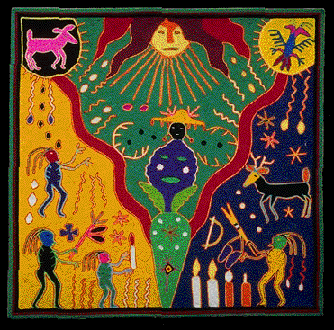
|
|
Main Submission
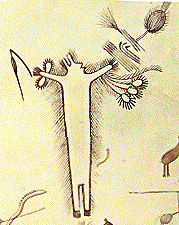
Aboriginal peoples used hallucinogenic substances for magical, medical and religious purposes. On almost every continent there is
evidence of psychedelic plant use dating back thousands
of years - for example Datura (since Sanskrit times) and
Iboga (since at least the 17th Century) from Africa;
Deadly Nightshade and Mandrake (since at least the
Middle Ages) from Europe; Cannabis (4000 years plus)
and the Fly Agaric (3500 years) from Asia; Peyote
(Chichimeca, Toltec - at least 2000 years of history),
Ayahuasca (a.k.a. Caapi, at least 200 years of use),
Psilocybin (Aztec, at least) and San Pedro (use dated to
1300 BC) from the Americas.
Often when they discovered a humble plant with
'supernatural' powers to transport man's mind to realms of
ethereal wonder, and even to communicate with spirit
worlds, the plant in question was revered or even
worshipped.
Mushroom cults in Central America, for
example, and in India, the Aryans' god-narcotic 'soma' :
most likely Amanita Muscaria.
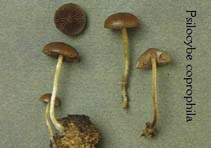
Modern man, when he wants to 'get out of his head' most
often turns to Cannabis (grows wild commonly near
tobacco and coffee plants, but only one of the three is
illegal), Psilocybe mushrooms (very easy to grow at
home), LSD, Ketamine and Tryptamines (e.g. DMT),
the last two most connected to out-of-body experiences.
No longer is there so much ritual involved, unless you
count locking the door.
.... for me, most intriguing are
the motives for occasional or habitual uses of these
drugs.
Are the people 'experimenting' today a similar slice of
society to those of yesteryear (in personality terms), or
are they a crackpot fringe, bored of life on the eve of the
Age of Aquarius?
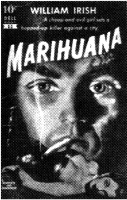 And are the realms that they explore, the spheres and
dimensions of consciousness the same ones that they
always were, or have THEY changed too?
And are the realms that they explore, the spheres and
dimensions of consciousness the same ones that they
always were, or have THEY changed too?
Finally, why is such psychonautry so frowned upon
nowadays? You get funny looks if you mention
meditation, let alone lucid dreams (shock!), astral travel
(horror!) and hallucinogens (lock him up!!). It is as
ancient as the human race.
Deeper
The drugs have changed, as has the intent.
I read a couple of very interesting books on Shamanism
(pronounced SHAH-manism) recently, with lots of
interesting background historical information.
(The Way of the Shaman by Michael Harner, and Soul
Retrieval by Sandra Ingerman, both from Harper
SanFrancisco of HarperCollins Publishers)
For example, I learned that while some shamans in some
cultures used hallucinogenic plants to journey, others did
not.
The common thread between the shamans of all known
ancient cultures, though, was the travel outside of
ordinary reality.
Those performing this were usually highly respected
members of the community.
A difference between then and now is that the
astral/nonordinary/SSC experience was used mainly for
the benefit of another person. Modern laws prohibit this
practice, where any helper plants are involved.
And the respect?
So yes, there are other routes to Destination X, involving
focussed intent, movement, visuals, repetitive beats,
abstentions from the senses, etc.
People still think you're a weirdo if you let on that you do
these things, though, legal or illegal.
And yet many of us do it, or attempt it, in our free time.
* Drugs today are used mainly (I venture to suggest) as
entertainment, as an escape from or an escape to; rather
than so much as a doorway. I take your point, though,
Erik, about the strong/remote likelihood of our ancestors
smoking, tripping or whatever, socially and for fun.
This could be because the popular ones are stimulants or
mood-alterers, rather than hallucinogens.
* Why is society down on mental exploration at the end
of the age of Pisces? (Symbol of the fish. Christianity,
anyone?)
Why? Why do the governments not want their citizens
exploring inner space with mushrooms, peyote and
ayahuasca? 'Owsley Bear' (can't remember his proper
name) put it well in a recent issue of the magazine Island
Life: I think he said something like "the government
wants lots of TV-watching, hamburger eating, mall
strolling solid citizens."
I should be careful quoting him without the article here
with me (it was a friend's, he is abroad), but his gist, as I
remember, was that it was time to take back the personal
power which has been taken from us by organisations.
A couple of vaguely connected spinoffs from the
hallucinogen angle.
Shirley
xxx
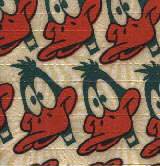
Follow Ups
Thank you Shirley for taking the time to make a Full
Submission. This is a subject that really makes me
question. Mostly, it makes me question the stupidity of
our current drug laws and the drug "war." That I can't
legally grow a peyote cactus or a pot plant to me is
ridiculous.
I also question and wonder what the psychedelic
experience may have been like to ancient shamans and
their societies. I wonder if perhaps there was more
recreation involved than we ordinarily assume.
Anyway, a fascinating subject, I'm sure I will have more
to add when time allows. - Erik J. Lundquist

I think the majority of the problem the "so-called authorities"
have with general consumption of mind-altering substances
centers around the fact that there is so much more trouble that
we, as advanced creatures, can get ourselves into. As a
civilized society, we created laws which serve to govern the
population, but mostly to protect the general populus from the
undesirable members of our race. Deranged serial killers and
child molesters are not incarcerated for our protection, so
much as to encourage their dismissal from our minds. We, as
a society, like to erase what is unpleasant to us, rather than
educate and learn from the example. Drugs, especially
marijuana because it is such an easily accessible narcotic,
represent what is uncontrollable and unknown, therefore what
is undesirable.
 Perhaps these are gross generalizations. Even I can admit that
one or two may, in fact, be just that. But how gross is a
generalization when we have a virtual "black market" in
marijuana going on everyday in high schools and colleges,
involving every race, religion, and economic rank? Perhaps,
instead of wondering why the sudden resurgence in the use of
mind-altering drugs, we should look at why our government is
so quick to put a stop to the use of such substances. I would
postulate that the sheer impossibility of our government's
abilities to tax the narcotic, so as to make it contribute towards
our gross national product, is the main reason why
mind-altering drugs are still illegal. If you give drugs a
positive slant, such as helping to deeper understand human
nature and our place in this world, they no longer exist as a
scapegoat for the reasons why things in our society are going
badly.
Perhaps these are gross generalizations. Even I can admit that
one or two may, in fact, be just that. But how gross is a
generalization when we have a virtual "black market" in
marijuana going on everyday in high schools and colleges,
involving every race, religion, and economic rank? Perhaps,
instead of wondering why the sudden resurgence in the use of
mind-altering drugs, we should look at why our government is
so quick to put a stop to the use of such substances. I would
postulate that the sheer impossibility of our government's
abilities to tax the narcotic, so as to make it contribute towards
our gross national product, is the main reason why
mind-altering drugs are still illegal. If you give drugs a
positive slant, such as helping to deeper understand human
nature and our place in this world, they no longer exist as a
scapegoat for the reasons why things in our society are going
badly.
Just a thought...
Lori
I spent many years researching altered states of consciousness and health with Dr. Andrew Weil. One of the most important things that I learned was that drugs are mearly triggers. The states are within us. Addiction occurs when we confuse the state with the trigger. States are processes. Processes move through time. In my experience every variation in state involves variations in the perception of time. -- r.c. cohen
|

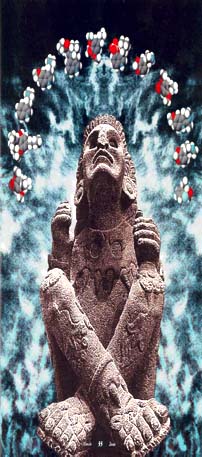


 "Are modern
humans seeking the same things as our ancestors were in
using narcotic and hallucinogenic substances? Have the
roles of legality and morality improved or damaged 'drug
habits', and is there still a strong case against the rights of
the individual to ingest what he pleases? Is it the same
sector of society that 'indulges', or has the field widened,
narrowed or otherwise changed? What is it that people
seek in other or expanded consciousness, and has THIS
changed over the millennia?" -- s.k.
"Are modern
humans seeking the same things as our ancestors were in
using narcotic and hallucinogenic substances? Have the
roles of legality and morality improved or damaged 'drug
habits', and is there still a strong case against the rights of
the individual to ingest what he pleases? Is it the same
sector of society that 'indulges', or has the field widened,
narrowed or otherwise changed? What is it that people
seek in other or expanded consciousness, and has THIS
changed over the millennia?" -- s.k.










 And are the realms that they explore, the spheres and
dimensions of consciousness the same ones that they
always were, or have THEY changed too?
And are the realms that they explore, the spheres and
dimensions of consciousness the same ones that they
always were, or have THEY changed too?


 Perhaps these are gross generalizations. Even I can admit that
one or two may, in fact, be just that. But how gross is a
generalization when we have a virtual "black market" in
marijuana going on everyday in high schools and colleges,
involving every race, religion, and economic rank? Perhaps,
instead of wondering why the sudden resurgence in the use of
mind-altering drugs, we should look at why our government is
so quick to put a stop to the use of such substances. I would
postulate that the sheer impossibility of our government's
abilities to tax the narcotic, so as to make it contribute towards
our gross national product, is the main reason why
mind-altering drugs are still illegal. If you give drugs a
positive slant, such as helping to deeper understand human
nature and our place in this world, they no longer exist as a
scapegoat for the reasons why things in our society are going
badly.
Perhaps these are gross generalizations. Even I can admit that
one or two may, in fact, be just that. But how gross is a
generalization when we have a virtual "black market" in
marijuana going on everyday in high schools and colleges,
involving every race, religion, and economic rank? Perhaps,
instead of wondering why the sudden resurgence in the use of
mind-altering drugs, we should look at why our government is
so quick to put a stop to the use of such substances. I would
postulate that the sheer impossibility of our government's
abilities to tax the narcotic, so as to make it contribute towards
our gross national product, is the main reason why
mind-altering drugs are still illegal. If you give drugs a
positive slant, such as helping to deeper understand human
nature and our place in this world, they no longer exist as a
scapegoat for the reasons why things in our society are going
badly.